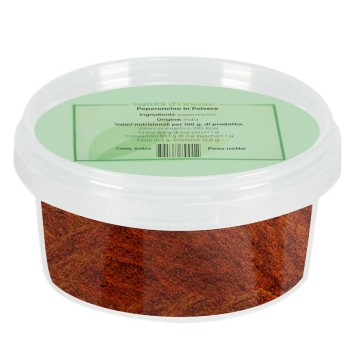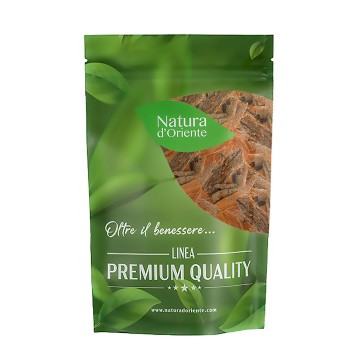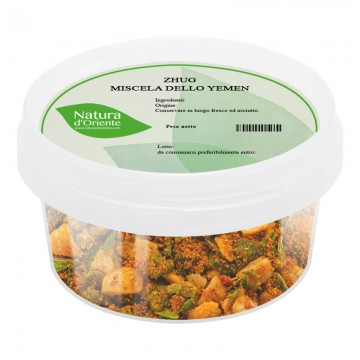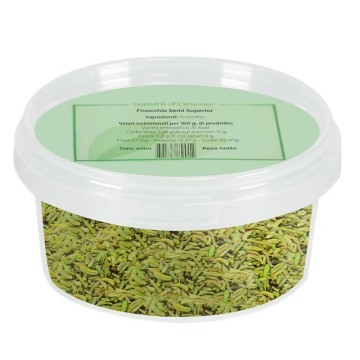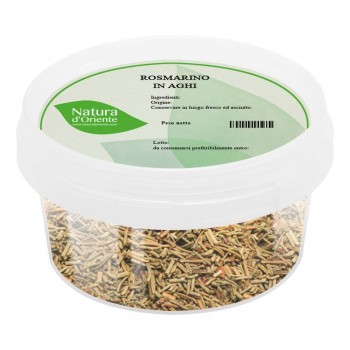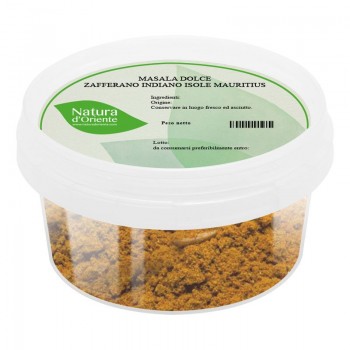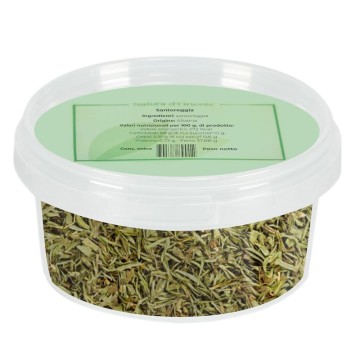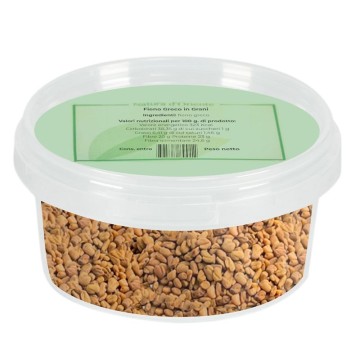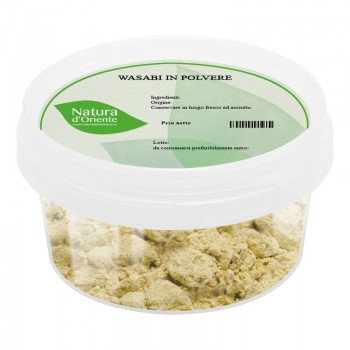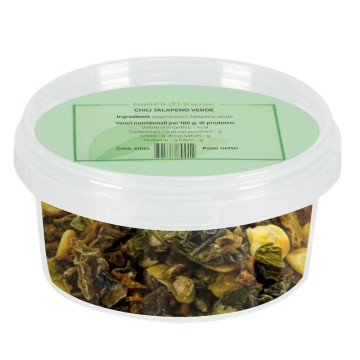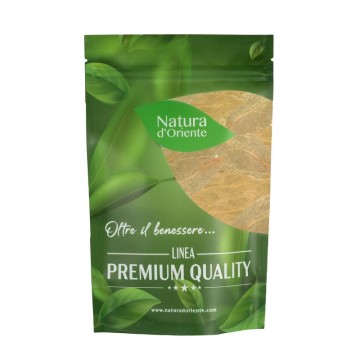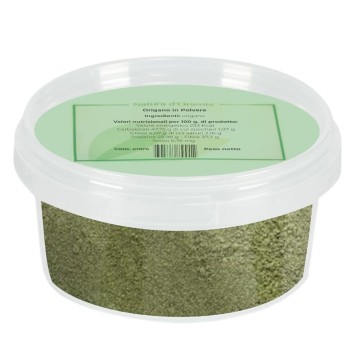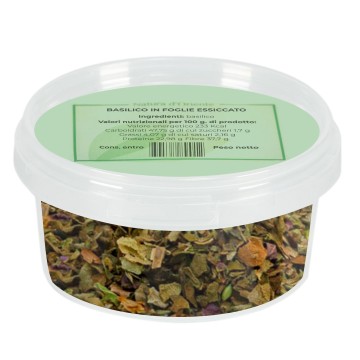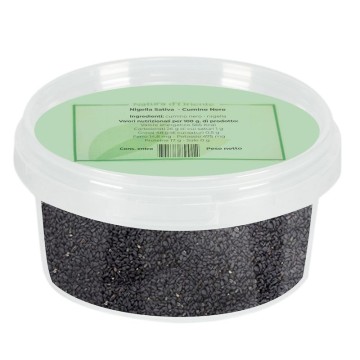Ginger powder: properties, benefits:
The properties attributed to ginger are truly many and very important, it is impossible to list them all. Some come to us from tradition, while others have been codified and discovered by science in recent years.
Among the most important molecules contained in the ginger rhizome are gingerols and shogaols, also responsible for the pungent taste of the root, essential oils, resins and mucilages. Zingerol in particular revealed that consuming ginger could alleviate symptoms related to inflammation. Furthermore, in phytotherapy ginger is a well-known remedy for diarrhea.
This root has also proven to be a powerful antioxidant useful for arterial hypertension and hypercholesterolemia, excellent in cardiovascular prevention. Also excellent for the antiemetic factor: in fact, it is known that Ginger helps fight nausea and vomiting associated with various causes, pregnancy or chemotherapy treatments. Thanks to its principles, ginger is also able to stimulate and maintain the normal peristaltic movements of the intestine, hindering dyspepsia and poor digestion. For more than 5000 years it has been considered a stimulant and a carminative (it removes air from the stomach and intestines and soothes pain), it has anticoagulant properties and appears to lower cholesterol.
Another important property of ginger is its effectiveness against nausea due to seasickness and chemotherapy. Numerous scientific studies are underway to verify these and other properties. Recently some researchers have highlighted the antioxidant qualities of ginger, as well as anti-tumor properties. Main nutrients that make up ginger such as carbohydrates, fats, calories, fibre, B vitamins (B1, B2, B3, B5 and B6), vitamins C, E and J are also present. As regards minerals, however , you can find: Iron, copper, potassium, calcium, selenium, zinc, phosphorus, sodium, manganese and magnesium. Today, Asia is one of the largest growers of ginger. The reason for this great diffusion can be traced to its tropical climate. Ginger is also grown in places where there is a subtropical climate.
Origins and notes on history:
Ginger or ginger, scientific name Zingiber officinale is a perennial herbaceous plant, native to Tropical Asia. From the rhizome a highly aromatic and spicy spice is obtained, which is said to have been very dear to Confucius (5th century BC) because it cleared the mind and eliminated impurities.
Most likely coming from China and India, where already several centuries ago it was widely used to remedy a wide range of ailments, from seasickness, to fever, to colds and headaches: not surprisingly, its Indian name means “great medicine“.
Ginger was considered a delicacy by the Greeks and Romans who paid heavy taxes to consume it. During the Middle Ages it was one of the most used spices in Europe in the kitchen, known by the name of “gingevo”. Ancient doctors attributed great values to ginger: Dioscorides believed it capable of warming and calming the stomach; Pythagoras as an antidote to snake bites; Galen, like all aphrodisiac substances, classified it as "hot" due to its spicy flavour.
It was precisely the invigorating aspect that was central to the Arab peoples who took ginger crushed with honey to reinvigorate sexual performance. According to the Salerno School, the rhizome pushed, or rather forced, young people to love, and this fame contributed to the birth of a potion composed of cinnamon, ginger, cloves, breadcrumbs and rose water.
In traditional Asian medical doctrines, ginger was and is considered a "hot" element. According to the Chinese, it fights ailments caused by the cold and digestive problems, while for the Indians it is a stimulant and pain reliever. Similarly, contemporary European phytotherapy attributes to ginger the property of combating nausea, vomiting and impotence.
Although in recent centuries this spice has lost its centrality in our cuisine, in oriental cuisine it has remained very important for flavoring sweet dishes or savory foods, sauces, Indian chutneys, spice mixes and drinks.
Contraindications Although these spices can do a lot of good, this does not mean that they can be abused in multiple quantities. Generally, a dose of around 30/40 grams per day is recommended.
Its excessive consumption can also lead to heartburn and stomach swelling.
In pregnancy it could bring heat by stimulating the contractionsuterine actions. Not recommended if you are allergic to the principles of the plant and/or have symptoms such as redness of the skin, rashes and itching.

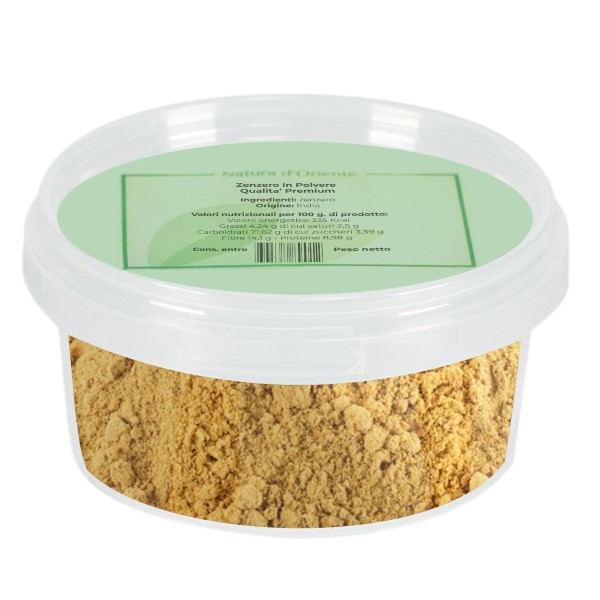







 No reward points for this product.
No reward points for this product.
